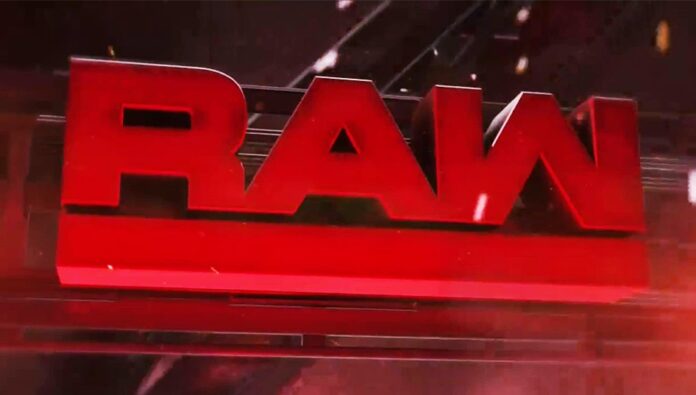
Buckle up, folks, this is going to be a bit of a ride here.
A lot of people give Jim Cornette hell because they don’t like his views on some of the things we love in modern wrestling. Guess what? Jim can dislike cruiserweights and “flippy stuff” while being entirely correct about everything that is wrong with WWE. In the past few weeks on his podcast, The Jim Cornette Experience, he’s been breaking down the structure of RAW shows, and I had an epiphany while listening to him do it today.
RAW is a show with severe ADD.
For years, fans (and us writers) have complained about bad storylines, bad shows, or misusing talent, but when you distill everything down, the problem is WWE’s trying to do too much at one time. I’ve maintained for years that the roster has too many people on it (a consequence of WWE wanting to run 2-3 house shows in different cities in one night). The way that they handle having such a big roster on TV violates Cornette’s dictum of “not every wrestler on your show needs a storyline.” Then, add in the fact that Vince McMahon has, since the 1980s heyday, harbored dreams of making the WWF/E more than just a wrestling company. This has led to fifteen years of investment in a film studio, creating their own network, feverishly promoting themselves with willing partners at Rolling Stone, ESPN, and TMZ—there’s been so much work put in elsewhere that they’ve stopped producing a wrestling show. What you watch now every week on USA Network is a circus.
So, why do I use ADD as the metaphor for RAW? Cornette’s breakdown of the show helped me realize what’s been bothering me for so long. There’s no focus on any one part. Every segment of the show has three things going on at once. There’s whatever the commentators are going on about, there’s some picture-in-picture where we’re looking at something unrelated to the match, there’s chyrons running a Twitter feed about what happened in the last segment, matches are constantly cut off by commercials…it’s plain unwatchable. This ADD also affects the storylines, which lack focus, consistency, and the basic building-block steps to show why a story is happening. We’re just sort of told we should care about something without any work to show us why we should care about the story happening in front of us.
A perfect example of this: there has been absolutely no explanation of why Drew McIntyre and Bobby Lashley continue to help Baron Corbin. Corbin isn’t general manager anymore, and he’s an absolute loser of a heel. McIntyre is a beast, but he’s been stuck in neutral since he was broken off from Dolph Ziggler (by the way, has anyone seen Dolph? I think it’s time to file a missing persons report). Lashley just lost the Intercontinental Title to Finn Bálor. What good has it done for Lashley and McIntyre to be with Corbin? Not only does it look random, because it is, but both men have done worse since the teaming. We haven’t gotten any explanation other than “these guys hang out together!” That does nothing to sell the storyline, and it doesn’t make anyone watching the show care, as evidenced by the very tepid crowd reaction they get. This is a perfect example of a storyline that isn’t a real story, and it’s only still going on because nobody has taken the time to pay attention to these people for more than thirty seconds.
Ratings are at all-time lows, and instead of focusing on getting back to basics, maybe slimming down the roster so they can focus on the core stars, the McMahons decided the solution was to call up a whole bunch of hot talent from NXT. I’m sure, in their head, they’re like, “If we put all these popular people on the show, the fans will start to watch again and care!” Instead of thinning out an overcrowded roster so the show doesn’t feel so cramped and unfocused, they’ve made the show even more crowded. Not only that, but they’ve disrupted existing stories and they’ve made their new RAW tag team champions, the Revival, look like clowns losing two weeks in a row to teams made up of singles wrestlers from the “minor leagues.” Meanwhile, Lacey Evans just walks out every week for thirty seconds and disappears again. Nikki Cross wrestles randomly. Heavy Machinery got turned into Jesse and Festus on RAW this week. EC3 is barely there. Dean Ambrose is refusing to re-sign despite a seven-figure offer. Kenny Omega and the Young Bucks shot down offers never made before by WWE. People are actively choosing to leave or not join WWE, something that was unheard of even five years ago. I can think of no more convincing proof that the company, in many ways, has turned into 1998 WCW—bloated, adrift, coasting.
I know this, to some extent, sounds like the usual complaining. When you get beyond listing the things that are wrong with RAW, the ADD that is exhibited by RAW is also a reflection of society in general. The engaged fans watch their shows and PPVs with an eye on Twitter, continuously tweeting and having conversations during matches. We’ll flip to other shows when a segment is boring, or we’ll watch on DVR, fast-forwarding through what we don’t care about. It’s entirely possible that the shows are being styled around what WWE perceives as the attitude of its viewing audience—a bunch of easily distracted, disaffected people that aren’t going to react to anything, so why should we try? I don’t know how true this may or not be, but even if that isn’t part of WWE’s thought process, it’s possible that, in part, we are causing the problem.
So, we’ve diagnosed what is wrong—what’s the cure for these ills? A lot of that depends on the head McMahon. It’s hard to tell whether Vince is: (A) an old man set in his ways; (B) has one foot out the door to the XFL and doesn’t really care anymore; or (C) he’s overtaxed but is unwilling to give up control. There’s probably bits of all of those potential answers at work here, and I suspect those issues led to the fight between Vince and Arn Anderson that got Arn fired last week. Arn is a living legend and one of the best wrestling minds of the past thirty years. Yes, it’s Vince’s company, but he just fired one of the most respected backstage voices in his company, and that isn’t the act of someone confident things are going well.
When All Elite Wrestling kicks off in May, with some very talented, popular wrestlers on the roster, and more poised to join in the weeks to come (potentially even Itami and Ambrose), their ratings will be very telling. If they start outdrawing WWE without competing on the same TV nights, that won’t be a good sign for doing things Vince’s way. Fox, especially, has been alarmed at the sluggish ratings, because they’ve shelled out an awful lot of money for Smackdown, and have publicly expressed their desire to make Smackdown look more like a sports show since ratings began their slump last fall. That will be good for fans, but tough for Vince to swallow. I suspect he does not understand that by striking his biggest ever television rights deal, he’s also given up a measure of control.
2019 is the fortieth anniversary of Vince McMahon’s career as a wrestling promoter and owner. The best thing he could do for his creation is to make this his last year. Step away, run the XFL, leave the wrestling business to his kids (and son-in-law), who understand, desperately, the need for change and have demonstrated through the success of NXT that they have a good feel for the pulse of wrestling fandom going into the next decade. If Vince chooses to stay and continue, he will need to accept not having every great wrestler under contract. He needs to accept the world has changed around him. He needs to actively admit his mistakes, as he did in 1997 when he was on the verge of bankruptcy, lifted his hand off the scale, and was rewarded by his wrestlers saving his business through their excellent, largely self-directed work. For the first time in nearly two decades, WWE is facing real competition and is not entirely in control of their future because of their TV agreements. If they don’t find their focus, the Murdoch family and Fox might find it for them, or AEW might overtake them, and that surely is not the ending Vince wants to his story.







